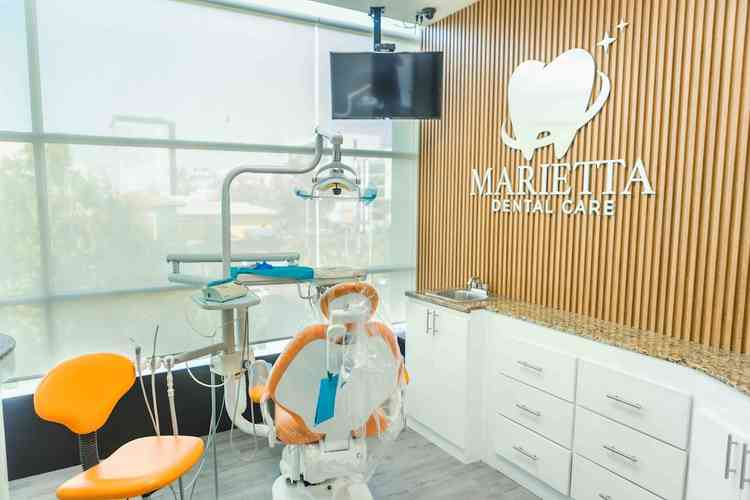Your Guide to Dental Implants and a Brighter Smile

Prathyusha Itikarlapalli
- Content Writer

Table of contents
None
Key Takeaways
- Implants are an effective solution for problems caused by missing teeth. They mimic natural teeth and are convenient to use compared to removable dentures.
- Your dentist will place them surgically under anesthesia and allow the gums to heal.
- Osseointegration can take a few months to form a strong foundation for these implants to function like regular teeth.
- Avoid certain foods like hot, crunchy, and sticky foods. Consume cold and soft foods for effective healing.
A radiant smile has the power to captivate hearts. But when your teeth are gapped, broken, or crooked, it can steal away that charm. WHO recommends that tooth loss or edentulism is not just about the awkward smile or struggling with a corn cob. It can tug you emotionally and affect how you interact with the world.[1]
Nearly 7% of adults over 20 years suffer from complete tooth loss. And the reasons behind it vary- from advanced dental caries to periodontal disease or trauma. Many dentists recommend dental implants as a beacon to a radiant, flawless smile.
Read further to delve into the world of dental implants.
A Brief Overview of Dental Implants
Dental implants are often considered a permanent solution for missing teeth. They step in to do what your natural tooth roots used to do gracefully.
Now, let’s break down the functions carried out by dental implants:
- Improves chewing ability: Implants restore your chewing ability. They allow you to savor your favorite foods without hesitation and worries.
- Imparts speech clarity: Teeth implants drive away the issues of slurred or unclear speech. They fill the gaps left by missing teeth and allow the pronunciation of words clearly.
- Preserve oral health: Teeth implants behave like natural tooth roots and prevent jaw bone loss. Further, they also prevent nearby teeth from shifting into the gaps.
- Offers radiant smile: Implants bear white-colored, natural-looking crowns customized by skilled professionals. You’ll get a stunning, flawless smile that’ll melt hearts.
Your dentist will carry out a detailed examination to understand your oral and medical health. Based on their findings, they’ll handpick the right type of implants that suit you. While the basic structure remains the same, dental implants come in various types for specific needs.
Understanding Dental Implant Types
Dental implants are often categorized based on different criteria. Dentists classify dental implants based on placement into endosteal, sub-periosteal, and zygomatic implants.
- Endosteal implants: These are firmly anchored within the jaw bone and are a preferred choice for many. They are ideal if your jawbone is sufficient or is suitable for a bone graft.
- Sub-periosteal implants: These will be positioned inside the gums but above the jaw bone. They are ideal if your jawbone is insufficient and you cannot undergo bone grafts for additional bone material.
- Zygomatic implants: Your dentist will fix them inside the cheekbone. They will advise these only if you are unsuitable for endosteal implants.[2]
Depending on the missing teeth number, dental implants are of the following categories:
- Single tooth implants: These involve the placement of a single implant to support a solitary crown. They are ideal if you have lost a single tooth from your jaw.
- Multiple tooth implants: These involve the placement of a few or more implants to support fixed bridges. They are ideal if a few teeth have fallen off your jaw.
- Full mouth implants: These are a perfect choice if you have lost most of your teeth and are left with only a few in a jaw. Depending on the implant number and prosthesis type, they can be all on 4, all on 6, all on 8, or 3 on 6 implants.
Dental implants are either titanium or zirconium, based on the type of material.
- Titanium implants: These are made from a metal called titanium. Titanium implants are durable and have excellent biocompatibility and a low failure rate.
- Zirconia implants: These fracture-resistant, non-metal dental implants are made from zirconia.
Your first step in getting dental implants is getting evaluated by the dentist. They will perform a thorough oral health examination to confirm your eligibility during this process. Your dentist will physically examine you and obtain 3D images of soft tissues, bone quantity, and nerve paths. For this, they will use dental and panoramic X-rays. Based on the findings, they’ll proceed to plan the treatment process.
What To Expect During Dental Implant Surgery
Your first phase of dental implant surgery starts with receiving anesthesia. It offers a feeling of relaxation without pain and discomfort during surgery. Your dentist will cut open the jaws at the location of the missing tooth. They will fix the implant inside the jawbone and close the gums with sutures. Further, they’ll leave the implant site to heal for a few months.
You will go home and be on soft foods like smoothies and purees. Don’t eat hard, crunchy foods as it may lead to dislodging of implants. The implant and jawbone will establish a long-lasting, strong foundation as they heal.
After successful healing, your dentist will schedule a second appointment to place an abutment. It is a minor outpatient procedure where your dentist will cut open the jawbone to access the implant site. They will place a small screw-like connector to hold the artificial teeth on implants. After this, they will close the incisions and allow the gums to heal for 1-2 weeks.
Your dentist will place the artificial teeth after your gums have healed completely. Further, they will collect teeth impressions to craft customized teeth. The artificial teeth can be a single crown, implant-supported bridge, or a fixed full-arch denture.
Once the customized teeth are ready, your dentist will schedule a final appointment to connect them to the abutment.
Ensure that you care for new teeth as you care for your natural ones. Although implants don’t decay, maintaining proper hygiene will help you prevent implant site infection. [3]
Alongside smile transformation with dental implants, there are other consequences to expect.
What To Expect After Dental Implant Surgery?
Immediately after your dental implant surgery, you will feel numbness and discomfort at the implant site. Gradually, the sedation wears off, and you will notice pain at the implant site. Your dentist will prescribe antibiotics and painkillers.
Your gums may bleed slightly. Expect pinkish or reddish saliva for a day or two after your implant surgery. Apply an ice pack to help stop bleeding and swelling.
Implants offer a natural chewing ability. However, ensure you don’t chew for the first 48 hours after surgery. Your gums may be sore and will bleed when you apply pressure. For this reason, avoid solid foods and go for soft foods or purees. Hot food can make your gums bleed. Hence, avoid them.
Instead, start with cold soups and sugar-free juices. As you ease on it, gradually move on to smoothies, protein shakes, oatmeal, yogurt, and mashed potatoes.
Here are a few tips to follow during the healing phase:
- Hydration and nutrition: Remember to stay hydrated and include proteins, vitamins, and mineral-rich foods for effective healing.
- Open cup versus straws: Drink smoothies in an open cup or use a spoon. Using a straw creates a suction force that disturbs the clot at the implant site.
- Smoking and drinking: Smoking adversely affects dental implants. It’s better to avoid smoking for the success of your new teeth.[4]
- Carbonated drinks: Processed food contains sugar that may interfere with healing. Avoid carbonated sugar drinks, and instead, go for sugar-free fruit juices. They satisfy your thirst and your body’s vitamin and mineral needs in one refreshing sip!
- Hard and crunchy foods: Avoid crunchy foods like nuts, chips, and crackers. Biting on these can exert excessive pressure on your new implants, potentially causing them to dislodge.
- Sticky foods: Avoid sticky foods like caramel, cheese, gums, and taffy after implants. They carry the risk of infection at the implant site. Instead, go for boiled and mashed potatoes, carrots, oatmeal, banana and avocados.
References
Disclaimer
The information in this article is for educational purposes only and does not replace medical advice. Always consult your doctor before starting any treatments.
Zirconia dental implants look more natural than titanium implants. These non-metal implants are white colored and seamlessly blend with natural teeth.
Dental implants behave like natural tooth roots and restore facial structure by preventing jawbone loss. They also prevent adjacent teeth from drifting into spaces left by missing teeth. They support your cheeks and lips, adding to the facial contour.
Smoking interferes with osseointegration and dental implant success. Dentists recommend avoiding smoking for the success of your dental implant treatment.
So, we partner with the premier healthcare facilities!
Send me the list


